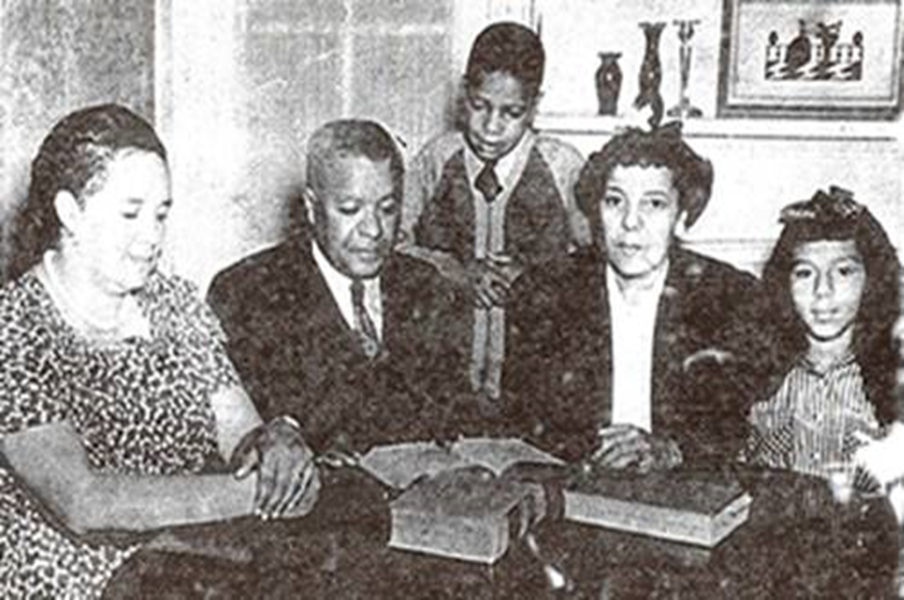When we think of the Civil Rights movement, we often think of great figures like Martin Luther King Jr., Rosa Parks, and other legends whose lives served as a testament to the creation of a better world. These figures were tasked with the dismantling of years of oppression, and are responsible for bringing about profound advancements in equity and justice in every avenue of our society. Although in many ways we are still continuing the fight that the pioneers of this movement began all those years ago, immense credit is given to those who turned the tides and help get our society on the right track. One such man that laid the precedent for years of advancement is none other than Trenton’s Robert Queen, a man whose life and legacy has impacted each and every one of us today.
Robert Queen, who was born in 1884, is an esteemed attorney best remembered for arguing Trenton’s most consequential Civil Rights cases. He received his law degree from Howard University in 1915, after which he officially began his career as an attorney. Queen started his law career off in Washington until 1921, when he had the opportunity to be admitted to the New Jersey bar. Once he began practicing law in the Garden State, he opened up his own practice here in Trenton, quickly establishing himself as the city’s premier African-American lawyer. During his time in the legal field, whether known or unbeknownst to him, Queen would ultimately be responsible for arguing cases that would fundamentally change the fabric of our nation forever.
Over the course of Queen’s career, many of the most famous cases he took on dealt with segregation and equal access to facilities. For example, in 1933, Robert Queen successfully argued against the segregation of Trenton Central High School’s swimming pool in front of the New Jersey Supreme Court. Queen also played a fundamental role in the eventual integration of public schools in Trenton and beyond. Although Queen argued on a number of school-related cases, the one that would ultimately define his career came about in 1943, when the Hedgepeth-Williams vs. the Trenton Board of Education case was officially brought before the courts.
Prior to the hearing of this case, African American children residing in the city of Trenton were only permitted to attend a select number of schools. Although placement in Trenton public schools was and still remains based on a student’s location, due to segregation rules, African American students in Trenton were made to travel up several miles at a time in order to attend one of the designated schools. This was an immense burden to these young students, whose physical well-being was put at risk every time they made the venture to and from school. Despite living closest to Junior High #2, students Leon Williams and Janet Hedgepeth were sent away from the local school due to the color of their skin. However, the children’s mothers, Gladys Hedgepeth and Berline Williams, would not let this grave injustice stand, and the Hedgepeth-Williams vs. the Trenton Board of Education case was officially underway.
Robert Queen was appointed by the NAACP to argue this case, where he would ultimately emerge victorious. Despite having to take this case all the way to the Supreme Court, Queen was able to successfully argue that the Hedgepeth and Williams children should have the opportunity to enroll in their local school. Alongside Leon and Janet, over 200 African American students were subsequently able to transfer from the Lincoln School to a variety of closer middle schools all throughout the community. The Hedgepeth-Williams case was also fundamental in setting the precedent for Brown vs. the Board of Education, the 1954 Supreme Court case which declared segregation in schools unconstitutional all throughout the nation.
Although Robert Queen passed away in 1960, the legacy of his work is felt in the hallway of every school in the nation. Through his groundbreaking work and powerful arguments, Robert Queen was able to successfully argue cases that fundamentally changed the trajectory of America forever. As we always say, history happens in Trenton, and the Capital City could not be prouder to call itself the home of this incredible man.

SOURCES:
- https://www.trentonlib.org/wp-content/uploads/2021/12/4Hedgepeth-WilliamsOnlinePDF.pdf
- https://www.shankerinstitute.org/blog/lessons-today-landmark-new-jersey-desegregation-case
- http://www.trentonlib.org/wp-content/uploads/2020/04/Trenton%E2%80%99sAfrican-AmericanHistoryManual2015.pdf
- https://ellarslie.org/wp-content/uploads/2020/10/Segregation-and-Desegregation-of-Trentons-Schools.pdf





